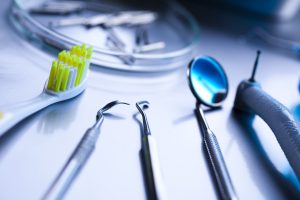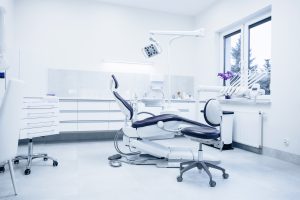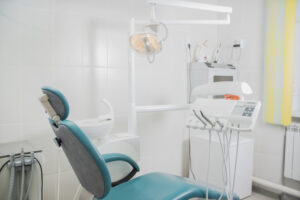By: Michael J. Naegele, J.D., LL. M.
At Nardone Limited, we believe that you should not shy away from taking a legitimate deduction that you are legally entitled to claim. Thus, when a taxpayer conducts business from a home office, the taxpayer may be able to deduct costs associated with maintaining the home office. Internal Revenue Code § 280A(c) allows deductions for a taxpayer’s use of a dwelling that also serves as the taxpayer’s residence to the extent that the deductions are allocable to the portion of the dwelling used regularly and exclusively as the principal place of business for any business activity of the taxpayer. The home office deduction often raises red flags with the IRS, however, so care must be taken to comply with the applicable rules and requirements.
Qualifying for the Home Office Deduction
To qualify for the home office deduction, you must use part of your home:
- Exclusively and regularly as your principal place of business;
- Exclusively and regularly as a place where you meet and deal with patients, clients, or customers in the normal course of your trade or business; or
- In the case of a separate structure, which is not attached to your home, in connection with your trade or business.
For most dentists, who would like to take advantage of the home office deduction, they will likely have the easiest time satisfying #1 above. In particular, the term “principal place of business” includes a place for the taxpayer to perform administrative or management activities associated with the business, provided there is no other fixed location from which the taxpayer conducts a substantial amount of such administrative or management activities. Thus, for example, a dentist might utilize a home office to perform administrative or management activities such as patient charting, marketing, billing and keeping books and records. Moreover, it is important to note that a dentist’s eligibility to claim a home office deduction under the above rules will not be affected by the fact that he conducts substantial non-administrative or non-management business activities at a fixed location outside the home – e.g., meeting with, or providing services to, patients at his dental office.
To be clear, the dentist’s specific office location – where he performs actual dental services on his patients – would continue to remain his principal place of business for performing the non-management and non-administrative functions of his dental practice. The home office, however, is where the dentist would be regularly performing a significant portion of the administrative or management activities for his dental practice. As a result, this dentist should be eligible to claim the home office deduction.
As noted above, to qualify for the home office deduction, the portion of the home designated as a home office must be used both exclusively and regularly by the taxpayer for such purpose to qualify. This is an essential element of the test, as it is literally the difference between qualifying for a home office deduction or not. The exclusive-use test is satisfied if a specific portion of the taxpayer’s home is used solely for business purposes. The exclusive-use requirement is strictly construed and thus the business portion of the home should not be used for any personal, family, or non-business activities whatsoever. The regular-use test is satisfied if the space is used on a continuing basis for business purposes – incidental business use does not qualify.
Method of Claiming the Home Office Deduction
Once a determination is made that you qualify for a home office deduction, you must then decide whether to use the actual-expense method or the safe-harbor method. Traditionally, a dentist taking the home office deduction would use the actual-expense method, whereby he must substantiate every expense associated with his home office to calculate the appropriate deduction. Now, however, dentists and other taxpayers can use the simpler safe-harbor method to calculate the home office deduction. Under the safe-harbor method, one just multiplies the number of square feet in the home office by $5 to arrive at the deduction amount, which cannot exceed $1,500.
Essentially, the safe-harbor method for the home office deduction is a simplified way for individuals to take the home office deduction, and will benefit many taxpayers, including dentists. Keep in mind that using the safe-harbor, however, may limit the amount of expenses you can actually deduct. Thus, in situations involving large actual expenses, using the actual-expense method may put you in a better position in terms having a higher amount of expenses that can be deducted. But, as always, dentists seeking to claim the home office deduction must ensure strict compliance with the rules and keep very good documentation.
So long as a dentist maintains adequate records, the attorneys at Nardone Limited can assist in determining whether you qualify for the home office deduction under applicable law and whether the actual-expense method or safe-harbor method would result in a greater tax deduction. If the deduction is approximately the same under either method, we would encourage a client to use the safe-harbor method for peace of mind in case of an IRS audit or examination.
Nardone Limited Recommended Tips
- Keep complete and accurate records to substantiate deductions.
- Keep records of expenses paid – e.g., cancelled checks and receipts.
- Document the square footage of both your home and your home office area.
- Maintain a detailed list of activities that you perform at your home office.
- Maintain a log of the number of hours and days used.
- For your minute book, maintain yearly minutes discussing the home office and authorizing the expenses for the home office.
- Review the use of the home office with your tax accountant and ensure that you advise your tax accountant that you want to fully understand the rules and have this applied strictly to avoid any IRS exposure.
- And remember, ensure that your home office is not used for personal purposes!
 Vince Nardone Discusses Employment Contracts with Ohio State Dental Students
Vince Nardone Discusses Employment Contracts with Ohio State Dental Students  Navigating the 2024 Landscape: Strategies and Considerations for Dental Support Organizations (DSOs)
Navigating the 2024 Landscape: Strategies and Considerations for Dental Support Organizations (DSOs)  Sellers of Dental Practices to DSOs need to have a Buyer’s Mentality Requiring Selectivity and a Well-Thought-Out, Decision-Making Process
Sellers of Dental Practices to DSOs need to have a Buyer’s Mentality Requiring Selectivity and a Well-Thought-Out, Decision-Making Process  Increasing Profitability by Minimizing Disruptions within Your Dental Practice
Increasing Profitability by Minimizing Disruptions within Your Dental Practice  As a Dentist, What Are My Obligations Related to Out-of-State Patients and Potential Prescription Drug Abuse?
As a Dentist, What Are My Obligations Related to Out-of-State Patients and Potential Prescription Drug Abuse?